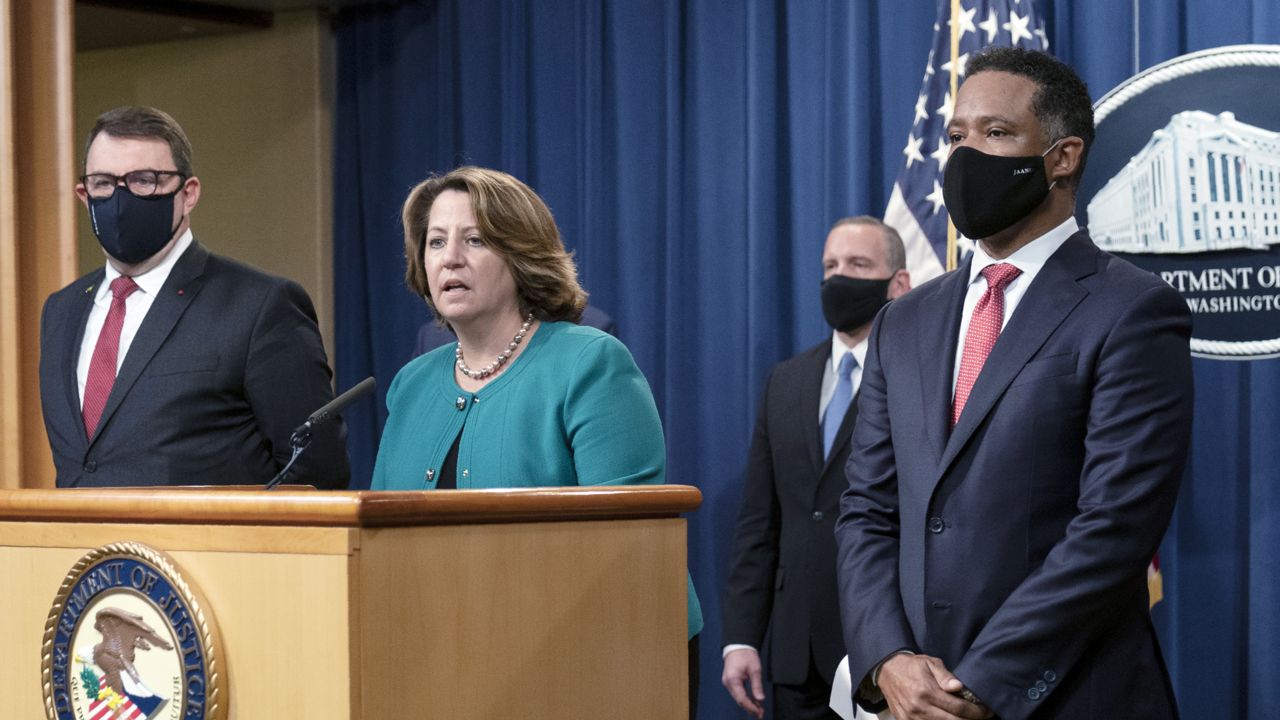A coalition of international law enforcement officials announced the cumulative results of Operation Dark HunTor on Tuesday, a 10-month long effort targeting illegal opioid sellers and marketplaces on the dark web.
Officials seized a total of $31.6 million in both cash and cryptocurrency, over 515 lbs. of drugs, including amphetamines and synthetic opioids, and made 150 arrests across the United States, Bulgaria, France, Germany, the Netherlands, the United Kingdom, Italy and Switzerland.
“This 10-month massive international law enforcement operation spanned across three continents and involved dozens of U.S. and international law enforcement agencies to send one clear message to those hiding on the Darknet peddling illegal drugs: there is no dark internet. We can and we will shine a light,” Deputy Attorney General Lisa Monaco said in a statement. “The Department of Justice with our international partners will continue to crack down on lethal counterfeit opioids purchased on the Darknet.”
The operation’s name is an amalgamation of the term “darknet,” a hidden online network that can only be accessed through specific software, and the “Tor Browser,” an internet extension that conceals users from online surveillance.
The rise in both illegal and legal marketplaces on the web is a key concern for U.S. officials, as drugs and synthetic opioids are becoming easily accessible on platforms like Snapchat, Facebook Marketplace and Instagram.
On many of these marketplaces, counterfeit pills are often designed to look like prescription opioids, including oxycodone, hydrocodone, alprazolam or stimulants like medications for ADHD. But unlike medications prescribed by a pharmacist, the counterfeit pills are available for purchase on social media and e-commerce sites, making them readily available for children, teens, or those without a legitimate prescription.
The amount of accidental drug overdose deaths have also increased in recent years. According to the CDC, from 2013 to 2019, the rate of deaths involving non-methadone synthetic opioids — like fentanyl — increased 1,040%.
While prescription painkillers once drove the nation’s overdose epidemic, they were supplanted first by heroin and then by fentanyl, a dangerously powerful opioid, in recent years. Fentanyl was developed to treat intense pain from ailments like cancer but has increasingly been sold illicitly and mixed with other drugs.
Tuesday’s announcement from the Department of Justice “builds on the success” of last year’s Operation DisrupTor, officials said in part, an investigation whose 120-plus arrests in the United States alone highlighted the expansive reach of the darknet.
The results of Operation DisrupTor came more than a year after officials took down the “Wall Street Market,” which was believed to be one of the largest illegal online marketplaces on the darknet. In May 2019, three German nationals were charged for allegedly operating the illicit site.
The Associated Press contributed to this report.



